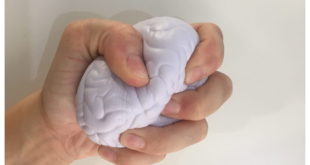What’s best for therapy trainees – personal therapy or self-practice/self-reflection? For over a hundred years, it’s been part of tradition and belief in many schools of psychotherapy that personal therapy is central to the development of effective therapist skills. For instance Freud wrote: “But where and how is the poor …
Read More »Understanding Hazardous Drinking and Suicidal Ideation and Suicide Risk among College Students: Anxiety Sensitivity as an Explanatory Factor
Suicide persists as a serious public health problem worldwide and in the United States, specifically. In addition to the loss of life, suicide results in tremendous pain to hundreds of thousands of families and loved ones each year. In particular, college students may be at risk for suicide and/or suicidal …
Read More »Learning gains from a one-day training in acceptance-based behavior therapy
Although mental health providers gain a strong foundation in psychotherapy during their graduate training, they must engage in ongoing learning to keep pace with advancements in the science and practice of psychotherapy. In many countries, including the U.S., mental health providers are required to complete a set number of continuing …
Read More »Efficacy of cognitive-behavioural therapy interventions on reducing burden for caregivers of older adults with a neurocognitive disorder: a systematic review and meta-analysis
The aging population is one of the great challenges that our western societies will have to face in the decades to come. Since age is the main risk factor for most neurocognitive disorders, more individuals will require assistance and care due to the associated cognitive, behavioural and psychological symptoms, and …
Read More »The benefits of a longer course of cognitive behavioral therapy for some patients with social anxiety disorder
Cognitive behavioral therapy (CBT) is a well-supported treatment for social anxiety disorder (SAD), a mental health condition characterized by fear of judgment or embarrassing oneself in social situations. Traditionally, evidence for CBT’s efficacy in the treatment of SAD has been demonstrated through randomized controlled trials of 12-16 sessions of manualized …
Read More »The moderating effect of age on the associations of cognitive and metacognitive beliefs with pediatric OCD symptoms
Two categories of beliefs have been found to be important to the development and maintenance of adult and pediatric obsessive-compulsive disorder (OCD): cognitive beliefs and metacognitive beliefs. Cognitive beliefs refer to general or social beliefs, and noteworthy beliefs relevant to OCD symptoms include exaggerated personal responsibility, intolerance of uncertainty, and …
Read More »Objective Analysis of Language Use in Cognitive-Behavioral Therapy: Associations with Symptom Change in Adults with Co-Occurring Substance Use Disorders and Posttraumatic Stress
What People Say: A Study of the Predictive Value of Language Use on Cognitive-Behavioral Therapy Outcomes among Individuals with Substance Use Disorders and Posttraumatic Stress Substance use disorders (SUD) rarely manifest in isolation. People with substance use disorder (SUD) often struggle with symptoms of posttraumatic stress disorder (PTSD). The most …
Read More »Predictors of relapse and recurrence following cognitive behavioural therapy for anxiety-related disorders: A systematic review
Many randomized controlled trials have demonstrated that cognitive behavioural therapy (CBT) is an effective treatment for depression and anxiety problems. However, many patients who receive CBT often do not maintain their positive outcomes after treatment, and instead experience a relapse of symptoms. The common occurrence of relapse after CBT not …
Read More »Virtual Reality exposure therapy for public speaking anxiety in routine care: a single-subject effectiveness trial
Virtual Reality (VR) refers to technology capable of creating an powerful illusion of being present in a virtual environment. Since the 1990s, VR has been used to conduct VR exposure therapy using virtual equivalents of phobic stimuli, and a wealth of research supports the efficacy of this approach. Until recently …
Read More »One Factor? Two Factor? Bi-Factor? A psychometric evaluation of the Frost Multidimensional Scale and the Clinical Perfectionism Questionnaire
Perfectionism is associated with anxiety, depression and eating disorders. Despite this, many researchers have argued there are benefits to being a perfectionist. The research however is not clear whether there are benefits because the components within perfectionism appear to be overlapping, which challenges the idea that that being perfectionist is …
Read More » Cognitive Behaviour Therapy A peer reviewed, multidisciplinary journal devoted to the application of behavioural and cognitive sciences to clinical psychology and psychotherapy.
Cognitive Behaviour Therapy A peer reviewed, multidisciplinary journal devoted to the application of behavioural and cognitive sciences to clinical psychology and psychotherapy.









